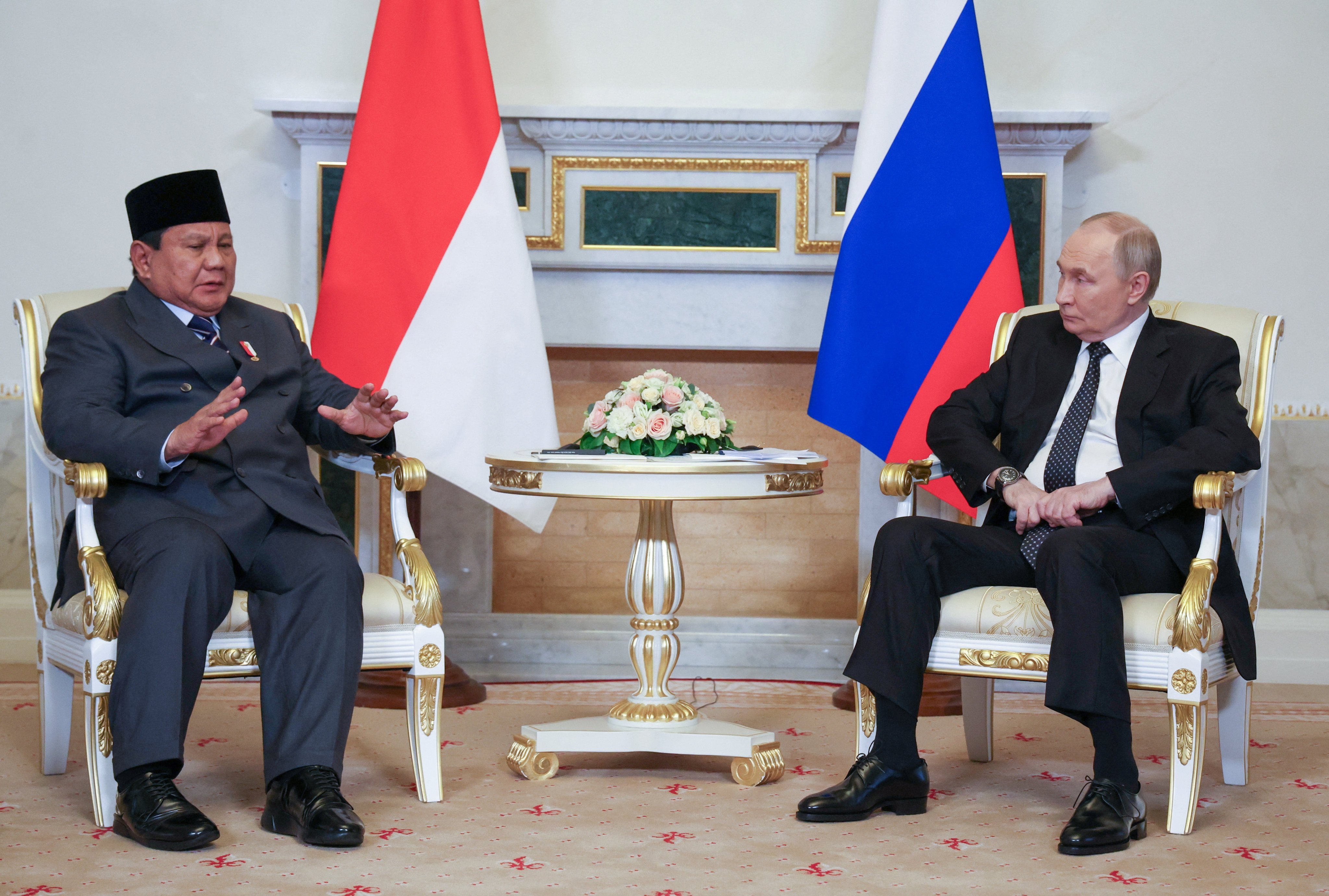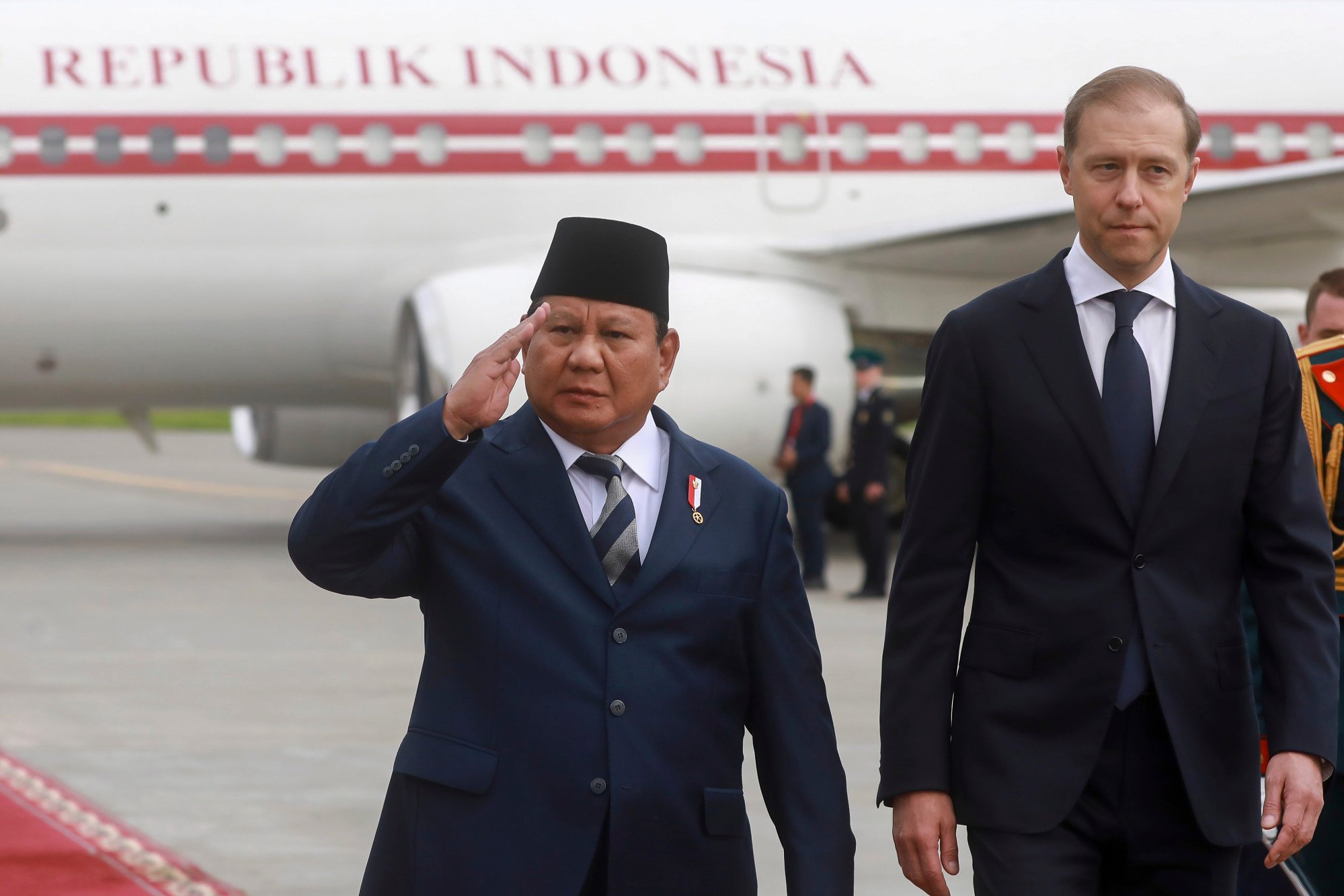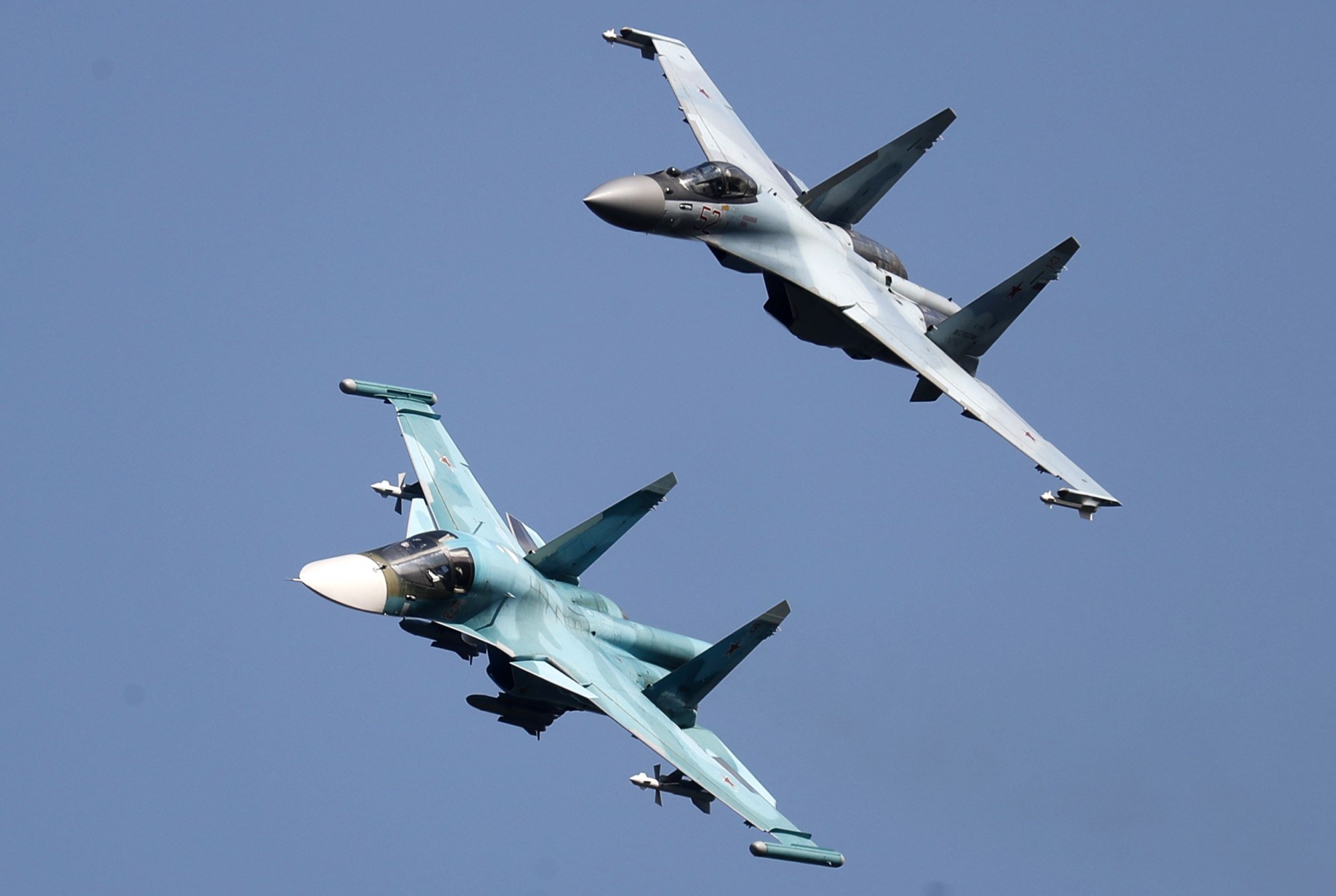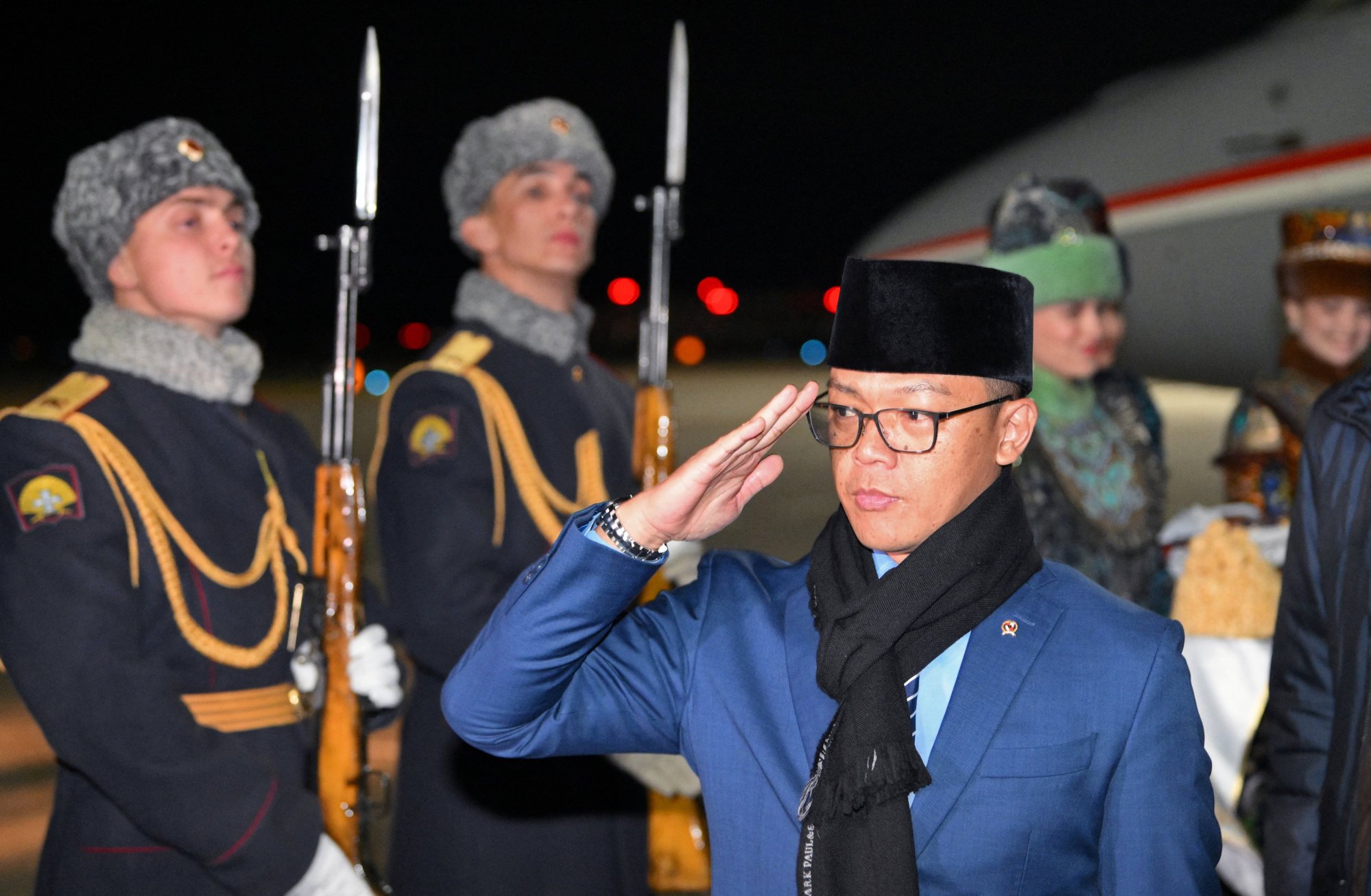Prabowo’s visit to Russia underscores Indonesia’s non-aligned foreign policy
The Indonesian leader is in St Petersburg at the invitation of Russian President Vladimir Putin instead of attending the G7 summit in Canada

Indonesian President Prabowo Subianto’s visit to Russia this week is seen as a pragmatic step towards advancing ties between the two Brics members while maintaining Jakarta’s non-aligned foreign policy.
Officially part of the 75th anniversary of Indonesia–Russia diplomatic ties, Prabowo’s three-day visit will include a keynote address by him at the St Petersburg International Economic Forum (SPIEF) on Friday, following an invitation by his Russian counterpart, Vladimir Putin.
Indonesia’s foreign ministry said both countries would be holding discussions on transport, shipbuilding, technology and regional cooperation.
Prabowo has declined an invitation to attend this week’s G7 summit in Canada, citing prior commitments in Singapore and Russia. Although Indonesia is not a G7 member, Prabowo has been invited as a guest of the host government.
His schedule reflects Jakarta’s strategic calculus rather than a diplomatic snub at Ottawa, according to analysts.
“Prabowo believes there is more to gain from going to Moscow than to Canada,” said Yohanes Sulaiman, an associate professor of international relations at General Achmad Yani University. He was less inclined to want to be involved in the G7 summit, given that its agenda was dominated by tensions over Israel’s attack on Iran, Yohanes added.

Abdul Rahman Yaacob, a research fellow at the Lowy Institute in Australia, said the trip to St Petersburg also reflected Indonesia’s economic priorities following its entry into Brics earlier this year.
One area that Indonesia was interested in was the acquisition of nuclear power as an energy source, with a deal involving Russia as a provider of the technology likely to be reached by both sides, Rahman said.
Given that the Indonesian military already possessed Russian-made combat aircraft, Jakarta and Moscow could also seal an agreement on defence cooperation, he added. With US President Donald Trump vowing at the G7 not to impose new sanctions on Moscow, it is an opportune time for Indonesia to acquire Russian-made weapons such as combat aircraft, according to Rahman.
A previously stalled US$1.1 billion deal to buy Sukhoi Su-35 jets “remains on the table”, Russia’s ambassador to Indonesia said in January. Despite Indonesia’s recent acquisitions of US F-15 and French Rafale aircraft, the deal to acquire the Russian fighter planes could be revived, analysts say.
Prabowo’s meeting with Putin follows a flurry of his engagements with other international leaders in Beijing, Washington, New Delhi and Jakarta since he took office last year.

Concerns over airbase access
One potentially contentious issue that could resurface between Jakarta and Moscow is Russia’s long-standing interest in securing access to an Indonesian airbase for logistical or refuelling support.
Citing his conversations with regional and Eastern European officials, Rahman said Moscow remained interested in gaining military access in Southeast Asia, particularly Malaysia and Indonesia. Reports earlier this year suggested that Russia was eyeing the Indonesian air force’s Manuhua base in Papua, prompting Jakarta to deny the claim.
“There is absolutely no discussion about borrowing an airbase in Indonesian territory for Russia,” Brigadier General Frega Wenas Inkiriwang, Indonesia’s defence ministry spokesman, said in April.
Rahman warned that any move to host or support Russian aircraft – even indirectly – could be perceived by Indonesia’s neighbours and Washington as a provocative shift in its defence policy.
“If these aircraft are used to conduct surveillance or harassment activities against Australia, the US or other Southeast Asian countries, Jakarta’s support … may be seen as a destabilising act,” he said. “That is something Indonesia’s defence elites must consider carefully.”
Sulaiman dismissed the prospect, saying “there is no way” Indonesia would accede to any such request from Russia, given its long-standing position against the presence of foreign military bases in Southeast Asia.
Darul Mahdi, a PhD candidate in international law at the University of Queensland, agreed, saying such a move would violate Indonesia’s constitution and foreign policy principles, with respect for sovereignty at the core.

Trade diversification
Indonesia’s ties with Russia are also driven by its ambition to expand trade beyond its traditional partners, according to analysts.
For instance, Jakarta has been seeking to finalise a free-trade agreement with the Eurasian Economic Union, which includes Russia, Belarus, Armenia, Kazakhstan and Kyrgyzstan.
“This move, along with Indonesia’s accession to Brics earlier this year, aims to reduce trade barriers and expand bilateral trade across sectors including energy, infrastructure, cybersecurity, tourism, health and education,” Darul said.
“These will help support Prabowo’s ambitious goal of achieving eight per cent annual economic growth by 2029.”
Leszek Buszynski, an honorary professor at the Australian National University’s Strategic and Defence Studies Centre, said Prabowo’s trip to Russia signalled his intent to elevate Indonesia’s profile and give it a global voice.
“Given that Russia is under international sanctions because of its invasion of Ukraine, [Prabowo] wants to show that Indonesia has an independent foreign policy,” Buszynski said.